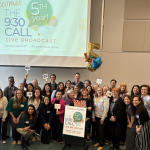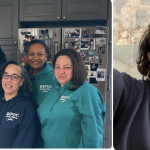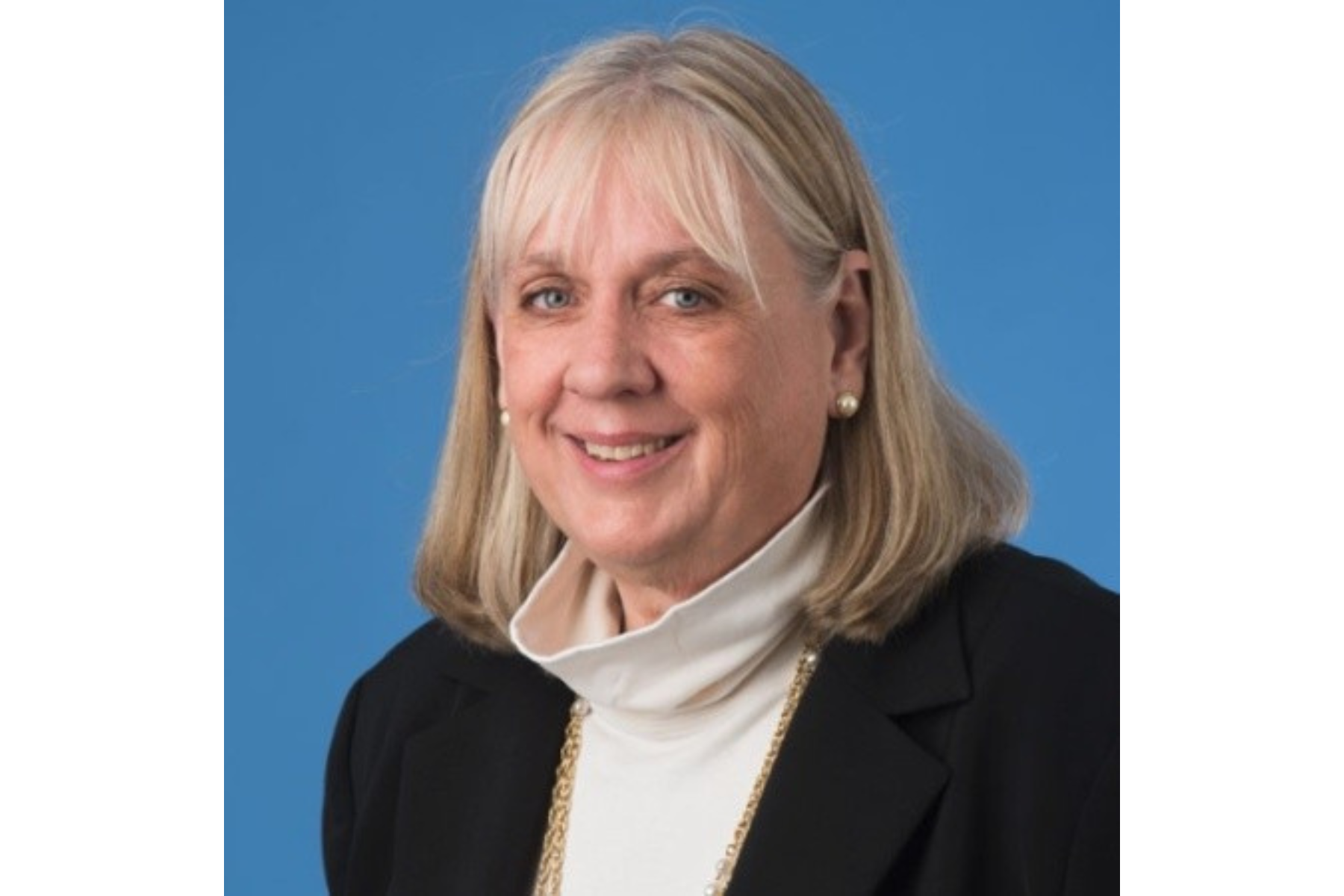Eve Gilmore had been a nonprofit leader for years before she came to Edward Street. A social worker by training, Gilmore had served on the boards of nonprofit organizations in Worcester, Mass. She has seen how organizations serve people, and now that she is newly retired from her job as CEO of Edward Street and thinking back over her career, Gilmore sees progress as well as unmet needs. She also sees that Worcester and Massachusetts have the power to build even stronger systems for young children and families.
What brought her to Edward Street initially were reasons that were more personal than professional.
“I needed a job that had some consideration of the fact that I was taking care of three kids under nine years old,” Gilmore recalls of her years as a single mother. “I needed the flexibility of being able to drop my kids at the bus stop early in the morning and pick them up at the end of the day.”
Edward Street was a personal fit and a philosophical one. Founded in 1883 as the “Day Nursery,” the organization was led by a faith-based coalition and served “the children of Worcester and, for a period of time, children whose mothers were patients at Memorial Hospital.”
When Gilmore joined Edward Street in 2006, it had already shifted away from providing direct services for children to operating instead as an organization that supports early educators and caregivers by advocating for policies that benefit children and families.
“When I started at Edward Street,” Gilmore says, “I knew very little about early education and care. I knew a lot about the issues related to women’s needs, the challenges for families, and trying to find high-quality care, but there was still a learning curve.”
Among the lessons was that Edward Street had its own inspiring history and its own struggles. The organization broke ground as one of the first early education and care organizations to provide young children with quality care and screening for ancillary services such as speech therapy and occupational and physical therapies to address children’s potential delays.
“In the ’80s and ’90s, however, it became apparent that Edward Street’s success was won on the backs of early childhood educators who were not making a lot of money and in need of benefits like health care and retirement,” Gilmore explains.
Today, Edward Street supports teachers’ professional development, including the Master Teacher Program. There are programs such as an annual children’s art show. Recent themes include “Where in the World is Piet Mondrian,” an exploration of the Dutch artist and his abstract paintings, and Weaving 1, 2, 3—Math, Motor Skills, and Masterpieces.
Advocacy is also a crucial part of the work. And, as Gilmore explains, one of the most notable features of Edward Street is the power of its coalitions.
“I was hired as the Director of Partnership Development, and my job was to work with local agencies to identify issues and resources. How do we network and problem solve together as a group to be able to advocate more effectively for increased resources? We raised awareness about business investment and government investment in early education and care, and as we did that, the agency grew,” Gilmore says of the work she did with Edward Street’s former Executive Director Dianne Bruce.
“Our goal was to become the go-to information and advocacy organization for early education and care for Central Massachusetts, to do what Strategies for Children was doing statewide and what the Davis Foundation was doing for Springfield.”
Among its partnerships and coalitions, Edward Street became involved in the research work that led to the creation of Together for Kids, a newly developed early childhood mental health program, run by Community HealthLink in collaboration with YOU, Inc. and Jewish Family Services of Worcester.
“We supported almost 20 years of work helping young children and parents understand how to work with teachers to create the best environment for kids who were experiencing developmental delays; and we worked on the best way to identify and access supportive resources early on, before kids reach the public school system, so they are better prepared to enter kindergarten successfully,” Gilmore says.
“From that early childhood mental health experience, people learned to work together, to problem solve, to elevate issues, to find political and financial investment in a cause. We took those skills and applied them to early childhood advocacy more broadly.”
Today, there are more than 200 members in the Together for Kids Coalition. The coalition addresses access and affordability for early education and care, investment by community and government stakeholders, and other early childhood concerns, while continuing to raise issues and work with state legislators.
“I always say to my colleagues that much of the work that we do is about community organizing and social planning and understanding that we need to sit at tables where someone else’s agenda may need to come before ours, but if we work together, we learn the skills, we share the win, and we can bring our own agenda to the table, and they will work with us.”
Another key lesson is the importance of being in rooms where things happen.
“My standard phrase is, If we in early education and care don’t show up at a table, they never talk about early childhood. If we show up, they talk about it. If we miss a meeting, they stop talking about it. So part of our impact has been to be present.”
Gilmore also points to the societal progress: how science has made the case for investing in early childhood, and how convincing University of Chicago Professor James Heckman’s research on the high returns of this investment has been.
Ask Gilmore about the future, and she says “I’m optimistic.”
“Since the pandemic, the field no longer feels isolated and siloed in terms of this provider on this street and that provider over at that agency. Everybody has come together under one banner so their voices can be heard, and they don’t feel alone. And because they don’t feel alone, they’re going to fight, inch by inch, knowing that there’s support out there, which was very unclear prior to the pandemic.”
“Since the pandemic, the field no longer feels isolated and siloed in terms of this provider on this street and that provider over at that agency.
Early on in the pandemic, Edward Street joined Strategies’ 9:30 Call and also began running calls for local early childhood program directors, continuing and expanding the practice of connecting and forming coalitions.
However, as she thinks about the future, Gilmore is also realistic.
“The field is going to have to continue to fight for visibility among competing priorities at the government level. The reality for most families, given where our economy is currently, is that early education and care is not optional anymore. Whether or not a woman wants to go to work, even having two incomes is not always sufficient to put families in the middle class.
“That makes it essential for the community and federal, state and local governments to build a quality, early education and care system at a time when most people are at the beginning of their careers, at the beginning of their family formulations, and facing the high expense of care as well as, in many cases, student loan payments. Not having publicly supported early education and care will break the back of the economy. This has to be acknowledged and addressed. Government doesn’t have a choice.”
Gilmore also points to the fact that state officials have just released a new report, the Inter-Agency Early Education and Child Care Task Force Year 1 Report: Community & Executive Branch Engagement on Early Education and Child Care in Massachusetts. This report, along with the 2022 release of the Special Legislative Early Education and Care Economic Review Commission Final Report share both the urgency and next steps to address the implementation of a more comprehensive, high-quality early education and care system for all Massachusetts families.
Doing this work now on behalf of all the state’s youngest children, Gilmore says, “will ensure their best start in life, which will shape their future success and our economic well-being as a nation. An integral part of these plans is recognizing the need for skilled, well-compensated and respected early education and care professionals. Now is the time to take a long look into the future at the return on investments in human capital for our children, our families, and our workforce.”



